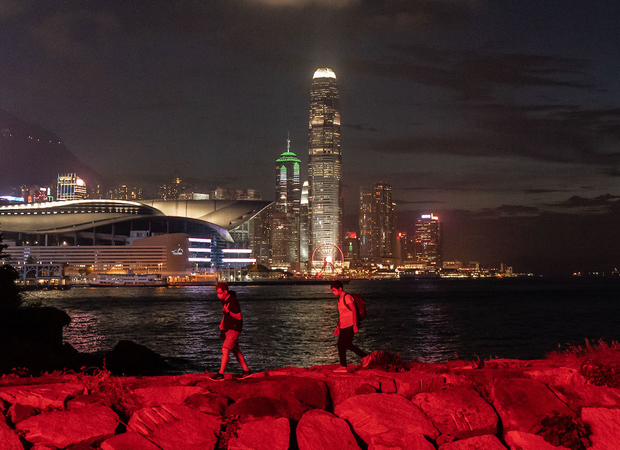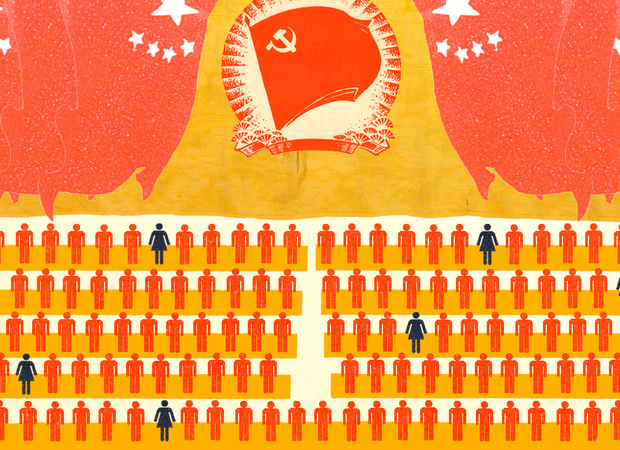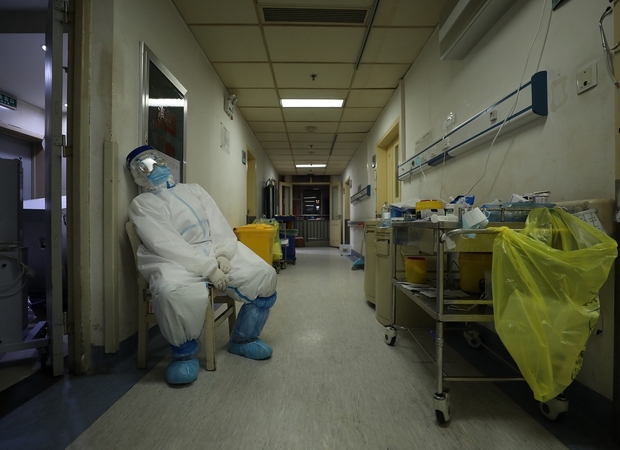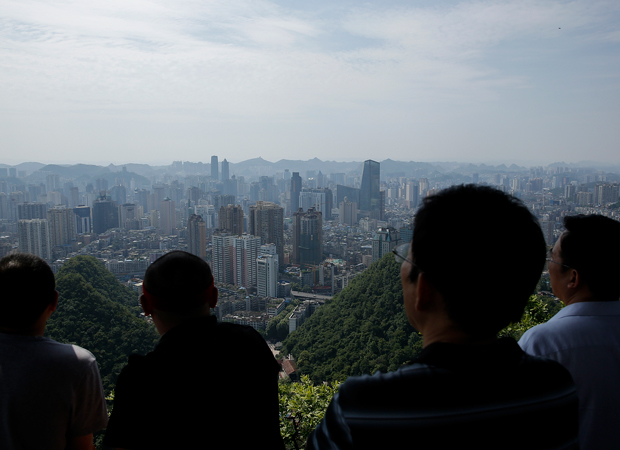
Will China Be a Global Vaccine Leader?
Beijing stands to reap major rewards by becoming the supplier of choice—or necessity—throughout low- and middle-income countries. China has expanded its international aid efforts in recent years and stressed its commitment to “south-south”...
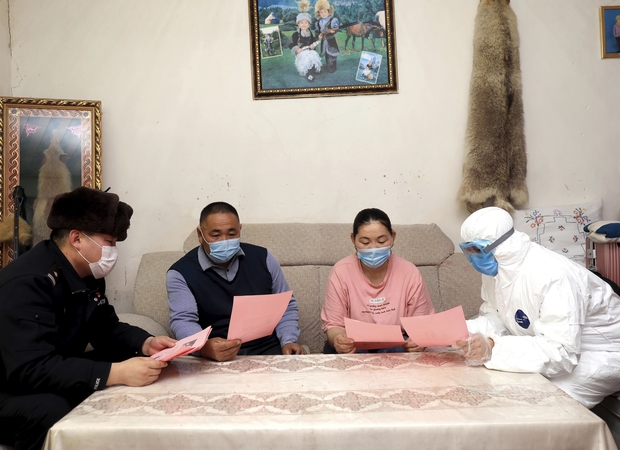
In Xinjiang, Rare Protests Came Amid Lockdown
Six months after China rolled out its first coronavirus lockdown in Wuhan in late January 2020, Urumqi was placed under quarantine. The first lockdown specifically targeting the capital of the Xinjiang Uighur Autonomous Region, rather than the...
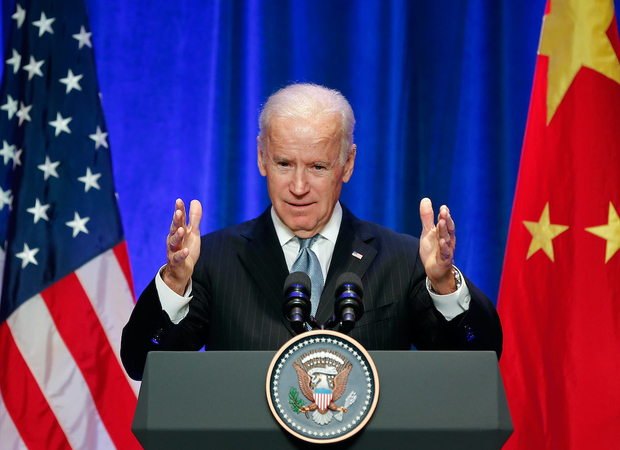
Four Principles to Guide U.S. Policy Toward China
from Carnegie ChinaAs the U.S.-China relationship becomes more competitive, how should the Biden administration approach ties with Beijing? What concepts should guide Washington’s China policy? In part one of this two-part podcast, Paul Haenle speaks with Ali Wyne...

Seeing the CCP Clearly
from New York Review of BooksThe split between the two friends is a small example of a wider disagreement between “Trump boosters” and “Trump critics” in the Chinese dissident community. The rift is plainly visible both inside and outside China and is likely to persist in...

China’s First Big #MeToo Case Tests the Party
from New York Review of BooksIn November, a court at last notified Zhou Xiaoxuan, known more commonly by her nickname, Xianzi, that it would try her case, a civil lawsuit filed in 2018 against television host Zhu Jun, who she alleges sexually harassed her. But when the trial...
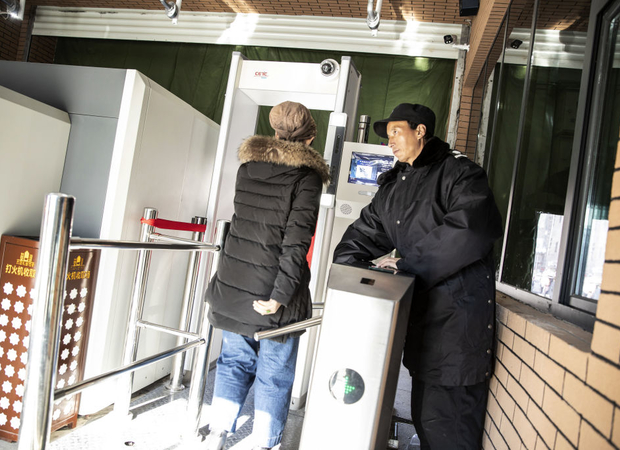
‘Because There Were Cameras, I Didn’t Ask Any Questions’

How the CCP Took over the Most Sacred of Uighur Rituals
The rooster hadn’t even stopped his crowing when the police arrived at my Uighur host’s courtyard in rural Turpan one early spring morning in 2008. Although they spoke calmly, almost apologetically, the uniformed Uighur officers demanded that the...
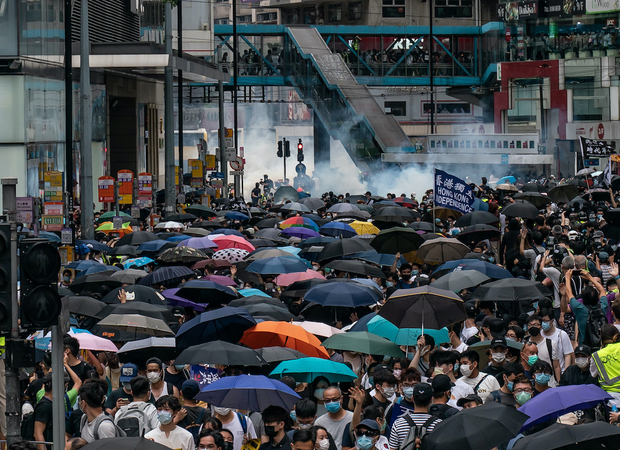
China’s Clampdown on Hong Kong
from New York Review of BooksHong Kongers demonstrated about everything from the removal of hawkers selling fish balls during the Chinese New Year to fare increases on mass transit (which had also provoked protests under British rule). But mostly they have demonstrated...
Meeting the China Challenge: A New American Strategy for Technology Competition
Is China or the U.S. ahead in artificial intelligence? What is the best way to counter security threats in 5G technology? How do we best maintain American leadership positions in fundamental research and biotechnology?
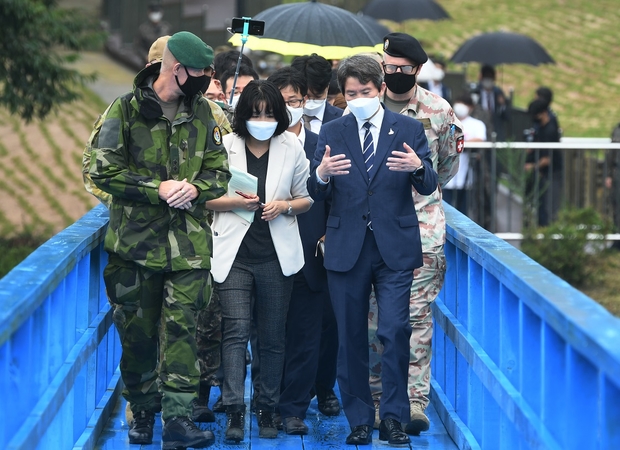
The Korean Peninsula after the U.S. Elections
from Carnegie ChinaThe result of the upcoming U.S. presidential election will directly impact how the United States, China, and Russia approach issues on the Korean Peninsula. How would a second Trump or first Biden administration deal with North Korea? How do...
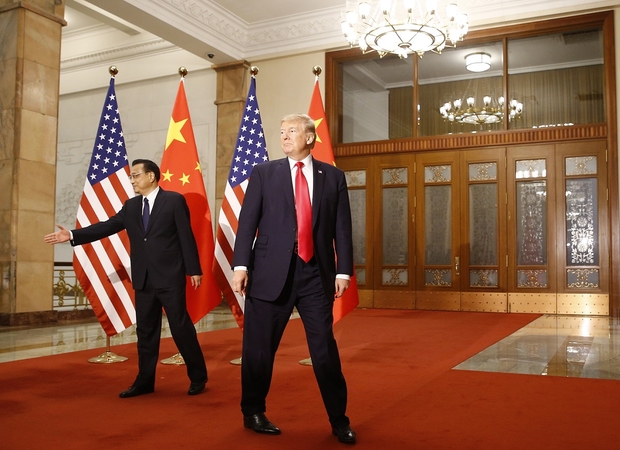
A New Normal for U.S. China Policy?
After four years of Trump’s trade wars, withdrawal from international bodies, and xenophobic immigration policies, the United States has hit an apex of isolationism. Even if a new government steps in, however, it’s not altogether clear the U.S....
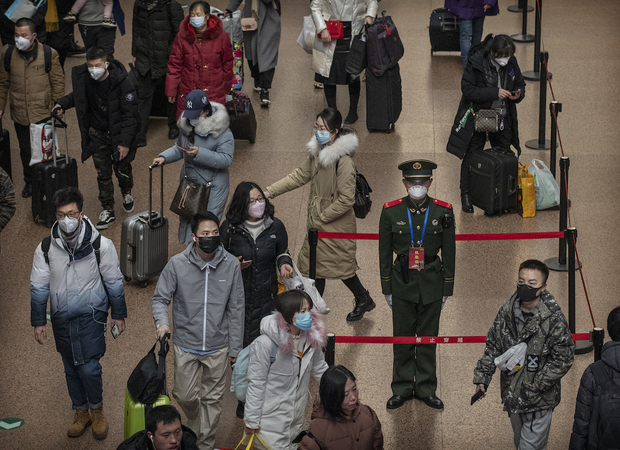
How Did China Beat Its COVID Crisis?
from New York Review of BooksThe coronavirus was a big deal; it was something that I (and many other smug foreigners) misjudged but that the Chinese authorities accurately saw as a public health crisis. The thought and effort that went into the flyer were especially...

Technical Difficulties
Citing national security concerns, the Trump administration announced...
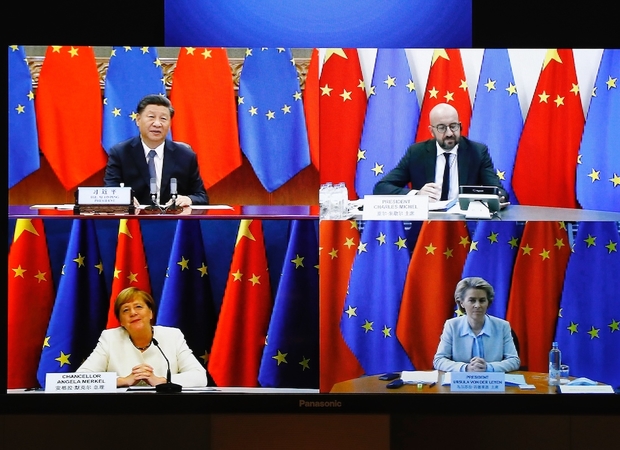
Europe and China’s ‘Virtual Summit’
Meeting via video conference on Monday, China’s leader, Xi Jinping, held a summit with European Council President Charles Michel, EU Commission President Ursula von der Leyen, and German Chancellor Angela Merkel. Slimmed down in format thanks to...

Could Same-Sex Marriage Advocacy in China Be Poised for a Breakthrough?
Last fall, as China’s lawmakers neared finalizing the country’s first-ever Civil Code, they opened to public comment its draft chapters on marriage and other areas of law. A newly formed coalition of LGBTQ organizations advocating for gay...
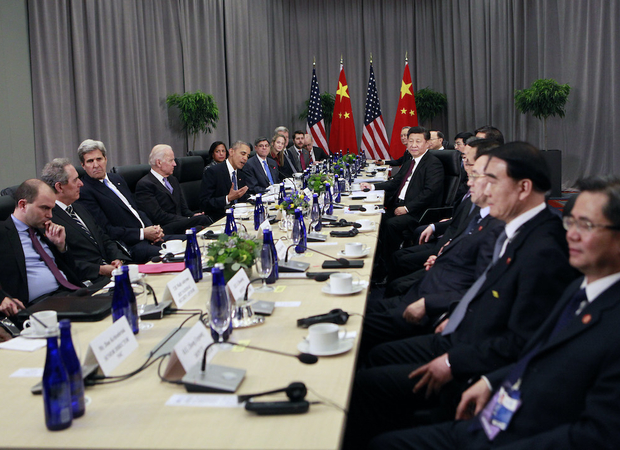
In Defense of Diplomacy with China
Critics of the last four decades of China policy have incorrectly and simplistically labeled diplomacy a failure because the People’s Republic did not become a liberal democracy. That was never the goal or an achievable objective of U.S. policy....
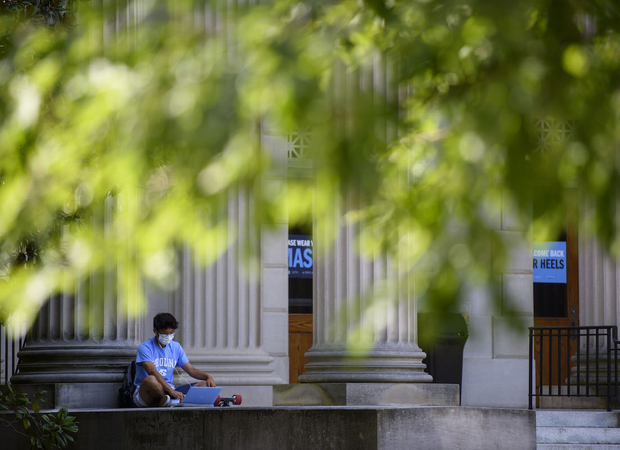
The Future of China Studies in the U.S.
As an extraordinarily fraught school year begins, the study of China on U.S. campuses (or their new virtual equivalents), as well as China’s role in university life more broadly, has recently become a subject of scrutiny and debate. What is the...
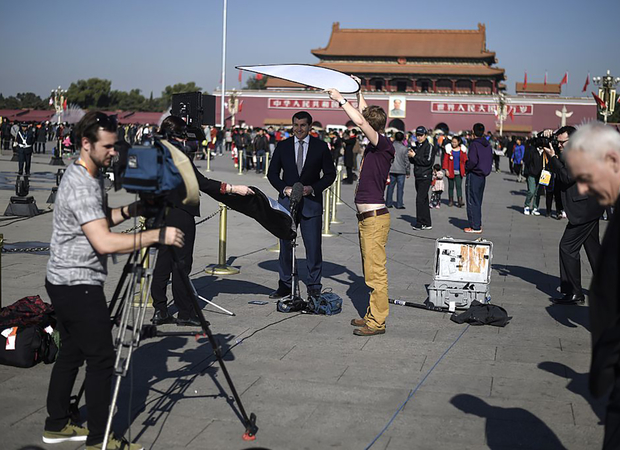
When China Reporters Can’t Report from China
Shortly after midnight on March 18, a phone call awoke Steven Lee Myers in his Beijing apartment. The call was followed by a flurry of messages: WhatsApp, text, email. Friends and colleagues were asking him questions: What is going on? What does...
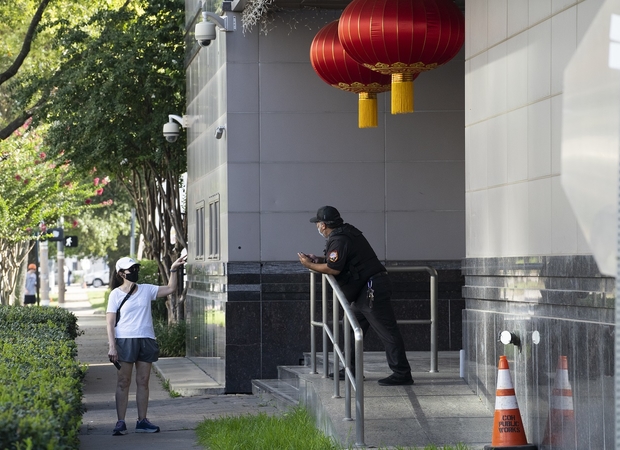
Reciprocity in U.S. Relations with China Should Be a Tool, Not the Whole Strategy
Since the outset of the U.S.-China trade war, critics have castigated the Trump administration for its capricious approach to relations with Beijing. They have found fault in particular with Donald Trump’s flip-flopping on sanctioning ZTE,...

For Wuhan’s COVID Mourners, Little Has Been Laid to Rest
In a conversation on Weibo, Yang, 50, told me about the loss of her 24-year-old daughter, Yuxi, her only child, to COVID-19. She was grieving, of course, but she was also seeking justice for what she viewed as an avoidable death. She showed me a...
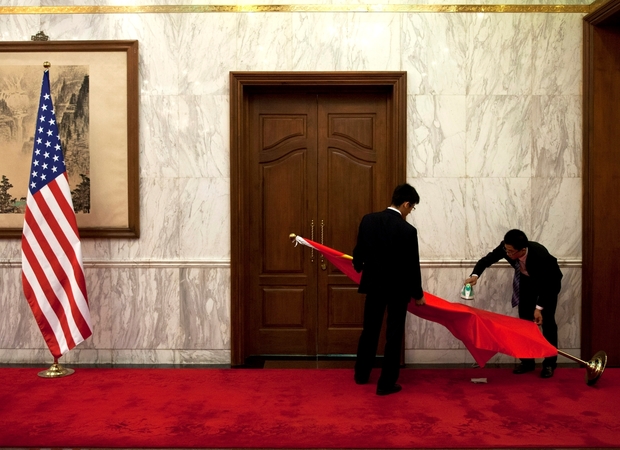
Is There a Future for Values-Based Engagement with China?
A key feature of current debates over U.S.-China relations is the proposition that “engagement failed,” in light of the Chinese government’s increasingly aggressive posture towards liberal values at home and on the world stage. Already on the...
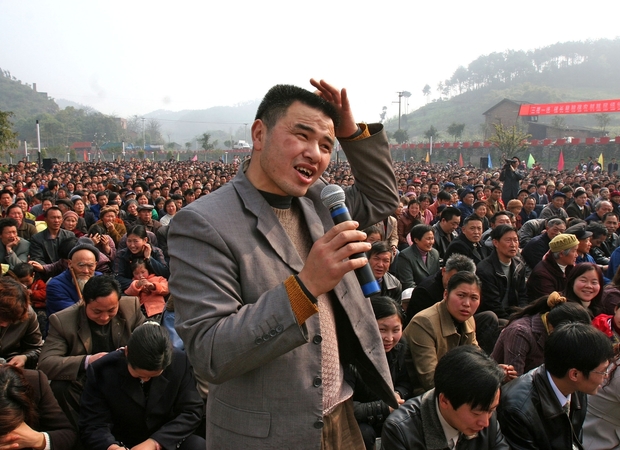
It’s True That Democracy in China Is in Retreat, But Don’t Give up on It Now
China’s popularity in the world is plummeting, and antagonism between China and the United States is growing. Many blame China for allowing a series of new viruses to emerge, for failing to stop COVID-19 when it first appeared, and for not...

How Should Democracies Respond to China’s New National Security Law for Hong Kong?
July 1 will mark 23 years since Hong Kong’s return to Chinese sovereignty. Each of those years—and many that preceded them—has seen its share of disquiet over the future of the territory’s way of life and about the resilience of “one country, two...

For Me, the Breakdown in U.S.-China Relations Is Personal
In my childhood, they were the Red Chinese. In my husband’s upbringing, we were the American imperialists. U.S.-China reconciliation after ping-pong diplomacy enabled us to meet and marry 40 years ago. Those of us with a foot in each world find...

Has COVID-19 Changed How China’s Leaders Approach National Security?
While the world is reeling from the cascading shocks of the COVID-19 pandemic, China has continued a comparatively aggressive course in its foreign policy and security posture. Not only has it continued military and paramilitary activities in the...
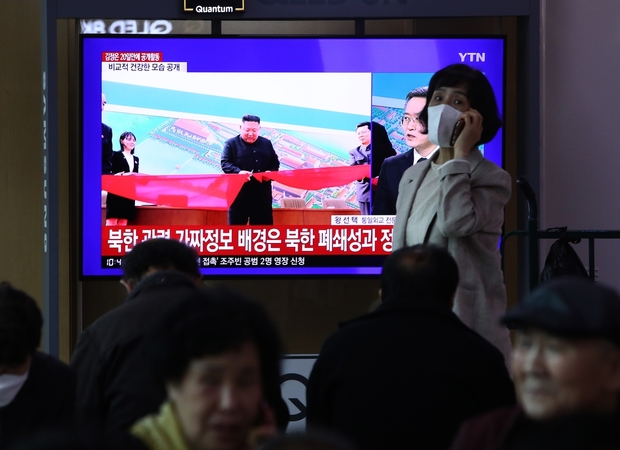
Coronavirus and the Korean Peninsula
from Carnegie ChinaAs nations confront the pandemic, rumors of Kim Jong-un’s death and a flurry of North Korean missile tests injected even more uncertainty in the international landscape. How do views in Washington, Seoul, and Beijing differ or align on North...
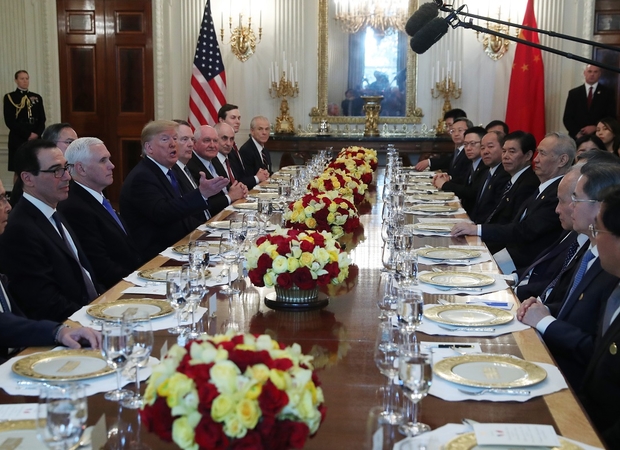
A New U.S. ‘Consensus’ on China May Not Be as Solid as It Appears
The COVID-19 pandemic has brought ties between Washington and Beijing to their lowest level since the countries normalized relations in 1979, with many observers warning that they have entered into either “a new Cold War” or at least “a new type...
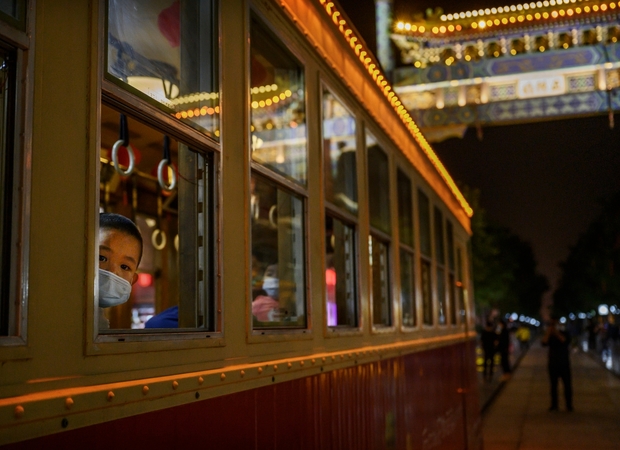
How Will Historians Look Back at the Coronavirus Outbreak?
Imagine that a historian decides to reflect on the pandemic, asking quite simply, “How did it come to this?” There would be many ways of telling that story. But one way would be to chart a series of off-ramps on the road to disaster. Some of...

U.S.-China Relations 2020: Coronavirus and Elections
from Carnegie ChinaChina is facing growing international scrutiny due to its initial mishandling of the coronavirus outbreak. Countries are increasingly questioning the motives underlying Beijing’s recent international aid efforts, and there is growing concern over...
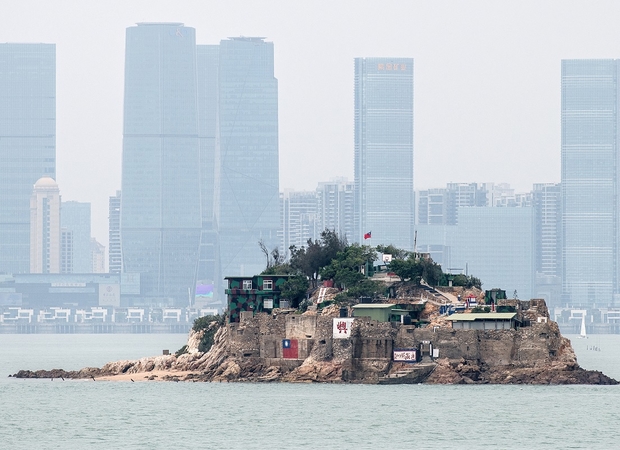
What Are the Right and the Wrong Ways for the U.S. to Support Taiwan?
What are the right and wrong ways for the U.S. to support Taiwan? Traditionally, America’s goals have been to deter the mainland from aggression and coercion, support Taiwan’s democratic system, strengthen economic ties, and help it maintain...
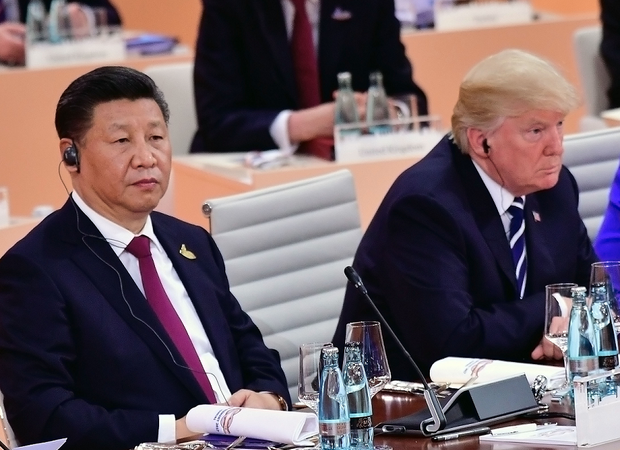
Missing in Action: U.S.-China Cooperation on Coronavirus
from Carnegie ChinaThe coronavirus outbreak has highlighted the many issues in the U.S.-China relationship. Why can’t Washington and Beijing better coordinate a response to the pandemic, replicating their cooperative efforts during the 2008 financial crisis and...
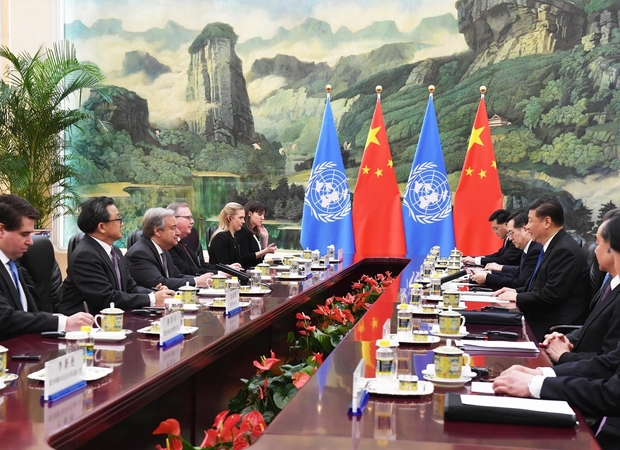
How Will China Shape Global Governance?
How is the Trump administration’s contempt for, and retreat from, multilateral bodies affecting China’s position and weight within them—or indeed its overall strategy for relations with these organizations? Do China’s leaders aspire to supplant...

What Does the Coronavirus Mean for EU-China Relations?
2020 promised to be an especially consequential year for the EU-China relationship, but three highly anticipated summits have been thrown into uncertainty, and diplomacy between Europe and China is now completely consumed by the coronavirus...
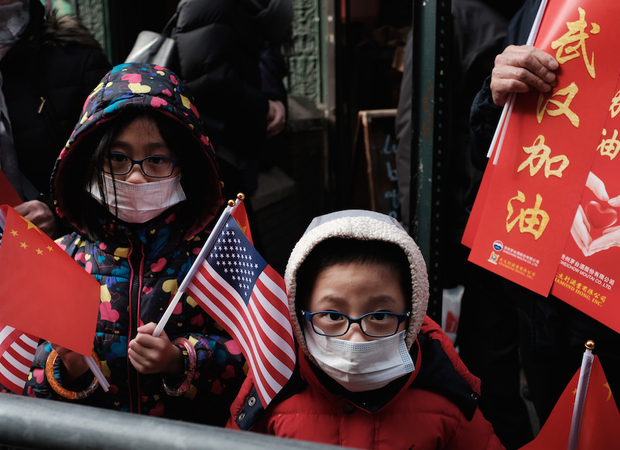
Is U.S.-China Cooperation on COVID-19 Still Possible?
Over the past two weeks, as the outbreak of the virus known has COVID-19 has accelerated its deadly spread around the world, an already collapsing U.S.-China relationship appears to be entering a period of free fall. This is happening at a moment...
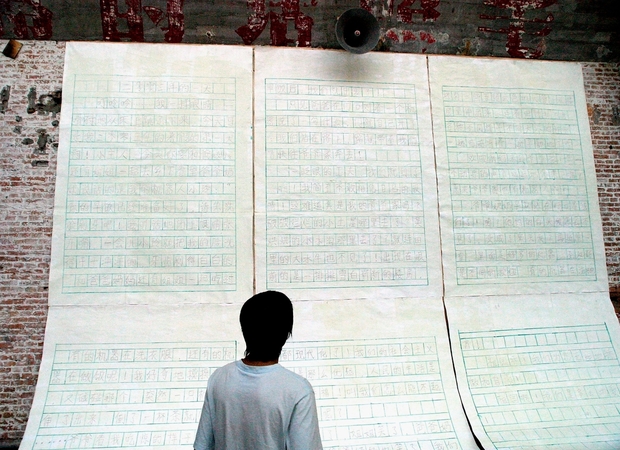
The Flowers Blooming in the Dark
from New York Review of BooksIt’s possible to identify another period that might surpass the 1980s as China’s most open: a 10-year stretch beginning around the turn of this century, when a rich debate erupted over what lay ahead. As in the past, many of those speaking out...
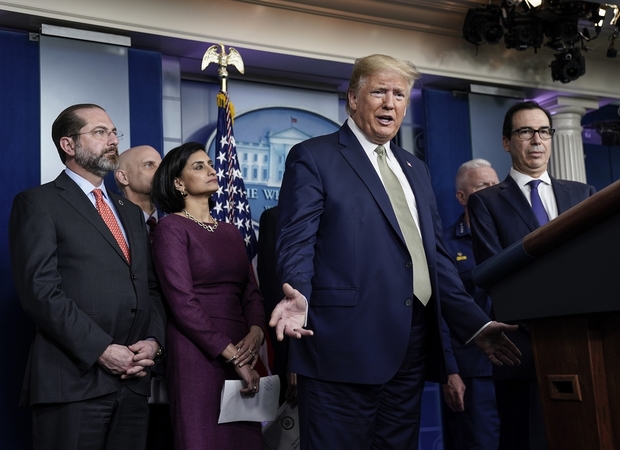
Xi Jinping May Welcome Trump’s Racism
The coronavirus pandemic has ushered in a new low-point for the already strained relationship between...

As Its Coronavirus Outbreak Abates, China Is Trying out a New Look. Is It Working?
As the coronavirus spreads globally, China’s government is working aggressively to change its international image. In the span of just a few weeks, China has gone from the embattled epicenter of the coronavirus epidemic to presenting the country...
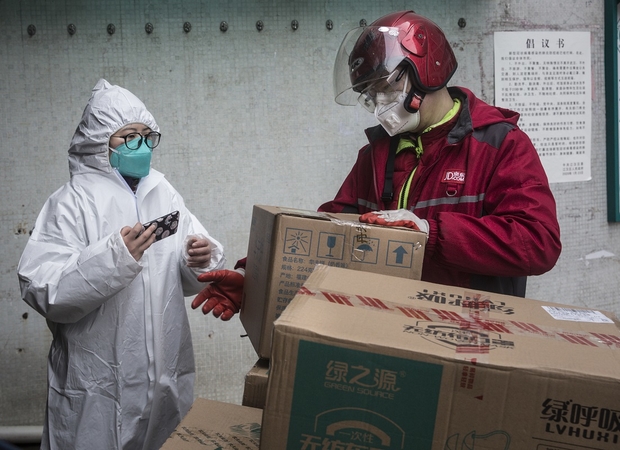
China Alters Civil Society Rules, Allowing More Groups to Respond to Coronavirus
As the COVID-19 epidemic continues in China, so do the efforts of civil society organizations and concerned citizens to mitigate the harm. In the official approach to managing their involvement, there have been clumsy force-of-habit measures from...
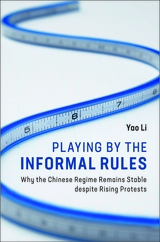
Playing by the Informal Rules
Growing protests in non-democratic countries are often seen as signals of regime decline. China, however, has remained stable amid surging protests. Drawing on a nationwide dataset of protest and multi-sited ethnographic research, this book presents a bird’s-eye view of Chinese contentious politics and illustrates the uneven application of informal norms across regions, social groups, and time.
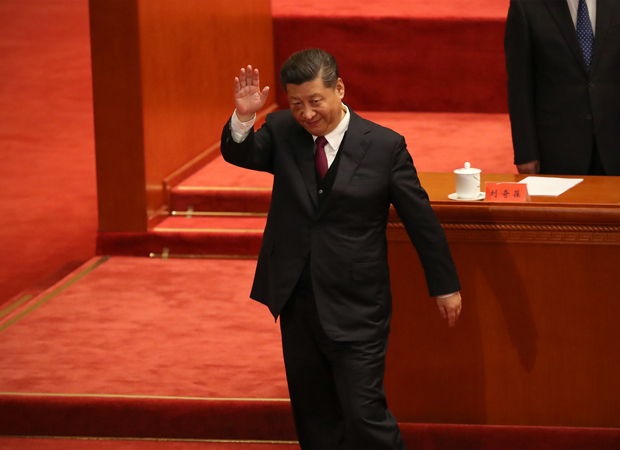
Dear Chairman Xi, It’s Time for You to Go
In this open letter, the author urges Xi Jinping to step down. Xu Zhiyong went into hiding in late 2019. The following open letter, which was released on 4 February 4, 2020, was written while he was on the run. On February 15, Xu was detained in...

Fateful Triangle
Madan argues that China’s influence on the U.S.-India relationship is neither a recent nor a momentary phenomenon. Drawing on documents from India and the United States, she shows that American and Indian perceptions of and policy toward China significantly shaped U.S.-India relations in three crucial decades, from 1949 to 1979. Fateful Triangle updates our understanding of the diplomatic history of U.S.-India relations, highlighting China’s central role in it; reassesses the origins and practice of Indian foreign policy and nonalignment; and provides historical context for the interactions between the three countries.
‘They Feel Like They Can’t Go Home’
In September 2014, while waiting for access to photograph Syrian refugee camps in Jordan, a Chinese photographer who calls himself “Ali” came upon a large group of students from his home country at a local restaurant. He knew that many young...
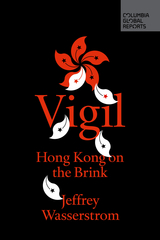
Vigil
The rise of Hong Kong is the story of a miraculous post-war boom, when Chinese refugees flocked to a small British colony, and, in less than 50 years, transformed it into one of the great financial centers of the world. The unraveling of Hong Kong, on the other hand, shatters the grand illusion of China ever having the intention of allowing democratic norms to take root inside its borders. Hong Kong’s people were subjects of the British Empire for more than a hundred years, and now seem destined to remain the subordinates of today’s greatest rising power.
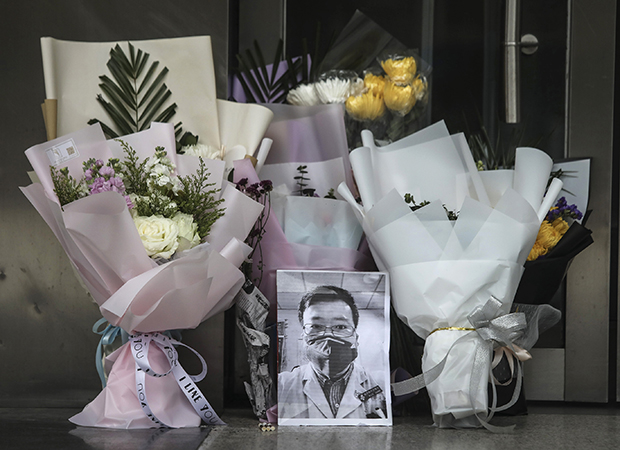
Public Anger Over Coronavirus Is Mounting. Will It Matter?
The coronavirus outbreak that exploded three weeks ago in the central Chinese city of Wuhan has prompted the most severe government actions in three decades. Cities are closed down, transport links broken, and tens of millions of people...
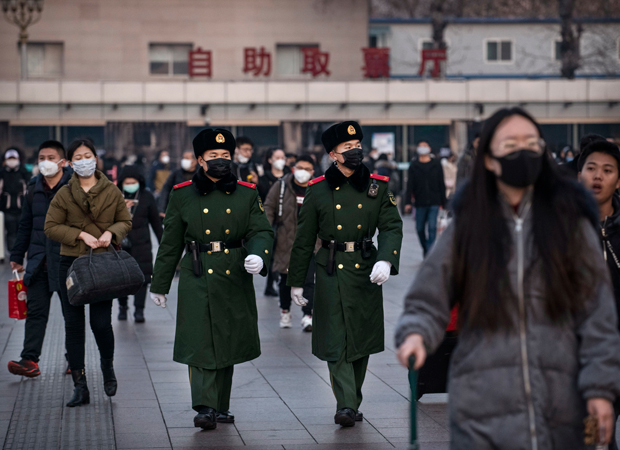
How Much Could a New Virus Damage Beijing’s Legitimacy?
A month into the coronavirus epidemic that has swept across China, the details of the Chinese government’s political and administrative response remain highly ambiguous. What has been unmistakable, however, is the volume and intensity of social...
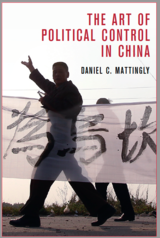
The Art of Political Control in China
When and why do people obey political authority when it runs against their own interests to do so? This book is about the channels beyond direct repression through which China’s authoritarian state controls protest and implements ambitious policies from sweeping urbanization schemes that have displaced millions to family planning initiatives like the one-child policy. Mattingly argues that China’s remarkable state capacity is not simply a product of coercive institutions such as the secret police or the military. Instead, the state uses local civil society groups as hidden but effective tools of informal control to suppress dissent and implement far-reaching policies.
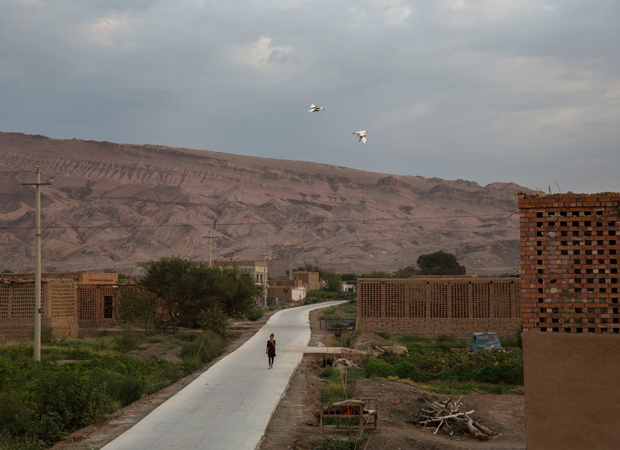
Why Aren’t More Countries Confronting China over Xinjiang?
China has justified its repressive actions in Xinjiang as a response to a series of terror attacks attributed to Uighurs. But the measures Chinese authorities have employed have attracted international condemnation. In July, the United Nations...
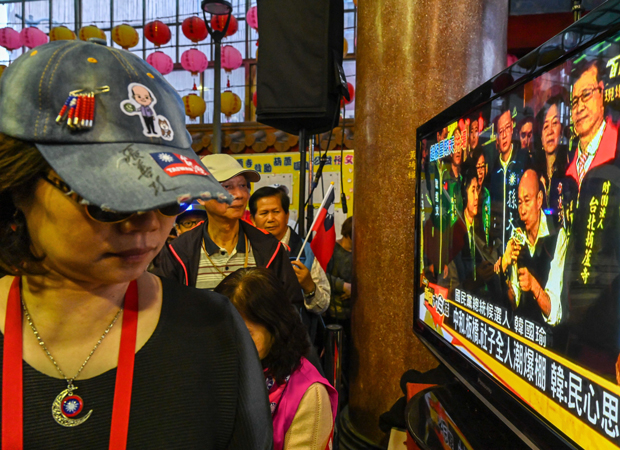
As Taiwan’s Election Nears, A Sense of Foreboding Grips Voters from Different Camps
On the evening of December 29, at a rally in front of Democratic Progressive Party headquarters in Taipei, hundreds of people are shouting in unison. They support Tsai Ing-wen, the Democratic People’s Party (DPP) candidate in Taiwan’s January 11...




